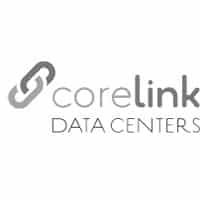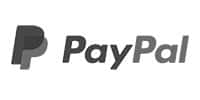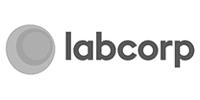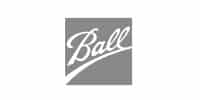 It doesn’t matter how big or how small your business is, there’s always a possibility that your website could be hacked. And the worst part is that several weeks or months might go by before you even realize that something is amiss with your site. No matter what business you’re in or how small of a budget you have, you always want to make sure that you, your website and your customers are properly protected against digital attacks. Besides firewalls and antivirus programs, knowledge is another effective tool in protecting yourself against hackers.
It doesn’t matter how big or how small your business is, there’s always a possibility that your website could be hacked. And the worst part is that several weeks or months might go by before you even realize that something is amiss with your site. No matter what business you’re in or how small of a budget you have, you always want to make sure that you, your website and your customers are properly protected against digital attacks. Besides firewalls and antivirus programs, knowledge is another effective tool in protecting yourself against hackers.
The Cost of Hacking
One thing that you have to always keep in mind about your business website is that it’s always open, so there’s always the possibility that it could become hacked. If you have a small- to medium-sized business, you can expect to pay more than $180,000 if your website is attacked, and that’s just on average.
Not only is there the financial cost that comes with hacking, there’s also the fact that future jobs could be lost as well. It’s estimated that at least 500,000 American jobs are lost every year because of the costs of hacking and cyber espionage. So not only do businesses have to pay for a hacker’s misdeeds, potential future employees do as well.
Other than businesses and potential future employees, there’s also the possibility that the web designer will also have to pay the price of a hack because they were the ones who designed the website that was hacked in the first place. Should clients spread the word about the web designer, there’s a possibility that the designer could lose out on business while the same happens to the company that they originally designed the website for.
The Ripples Caused By Hacking
Should your site ever become compromised, you can immediately expect a loss in profit and revenue because you have to shut down while you get everything taken care of. Even if you open up a temporary website while you’re building a new website, there’s still the possibility that your customers will be uneasy about doing further business with you, and that’s especially true if their credit or debit card information was stolen during the hack.
Just like you have to do everything that you can to protect your business reputation after a cyber-attack, search engines also have to protect their reputation as well as anyone who uses their search engine. What this means is that your search engine rankings can take a serious hit after it’s been discovered that you’ve been hacked. Should your site be blacklisted by search engines, you might show up significantly lower on search engine results than you did before the hack.
Businesses that have been hacked also have to consider the very real possibility that some of their customers might take legal action if their financial information was stolen during the hack. Now you have to take time away from rebuilding your business in order to go to court and you might even have to spend money to hire a lawyer and pay for legal fees.
And to add insult to injury, if your business has a credit card issuer, they might fine you hundreds of thousands of dollars for the breach in security.
After the Dust Settles
You can still be feeling the effects of getting hacked several months and possibly even several years after it happened. Should the media get ahold of the information, they might always throw in the fact that you were hacked whenever they mention your name in the future.
If you have sensitive employee information that was also hacked, social security numbers, health care information and even home addresses might have been compromised. Now your employees have to worry about their identities being stolen at any time in the future, which might cost them additional frustration on top of being associated with a business that’s been hacked.
How it Happens
There are several ways that your website can be hacked, including:
- Content Management Systems(CMS) are often vulnerable to access to the site through back doors created by the permissions needed for a CMS to operate. Old CMS’s or not updated versions are a very common entrance for a hacker
- Plugins are often used in CMS’s for many reasons to make adding content, custom code, or images easier for the user. Some plugins, however can leave you vulnerable to a hack.
- Insecure passwords. There are computer programs that are designed to filter through random combinations of passwords until they find the right one that will give them access to your site
- Old code. Outdated or poorly written code can also act as a gateway for hackers. You might want to think about updating any old plug-ins or themes on your website.
Some of the warning signs that your site might have been hacked are:
- Sudden surges in traffic from odd locations
- Massive uploads of spam
- Malware warnings
- Several 404 error messages
- A sluggish site
If you even suspect that you site might have been hacked, act as quickly as possible in order to mitigate any damage that might have been done. Get in touch with your hosting provider and inform them of your suspicions before you change all of your passwords. You can also hire someone to professionally “scrub” your website, which might cost upwards of $200.
To protect yourself from being hacked, it’s a good idea to change your passwords often, install security plug-ins and make sure that your website is always up to date. At the end of every month you’ll want to take a close look at your website and get rid of any themes or plug-ins that you aren’t using so that they don’t become a security liability in the future.
Think of business website protection like insurance—while you might not ever need it, it’s still a good thing to have and one of the best ways to save yourself time and money in the future. There’s no way to make your site completely hack-proof, but you can most definitely make it hard for hackers to make off with ill-gotten gains.



























